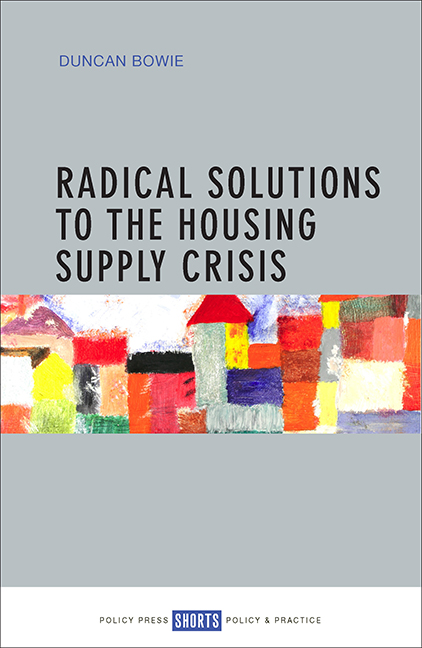1 - Conservative government policy and the Housing and Planning Act 2016
Published online by Cambridge University Press: 05 April 2022
Summary
Introduction
The Housing and Planning Act, which obtained Royal Assent on 12 May 2016, represents a fundamental redirection of housing and planning policy and can be seen as a fundamental shift from the post-war consensus. It is more significant than the Conservative government's Housing Act 1980, for as well as representing a further stage in the residualisation of the social housing sector, its planning provisions represent an abandonment of the basic principles of the Town and Country Planning Act 1947. The 2016 legislation, radical in its content and wide-ranging in its impacts, was rushed through Parliament in the final hours of the parliamentary session in April. It received little attention in the press and, despite the housing crisis having pushed the issue up the political agenda, little recognition in wider political circles, which were increasingly focused on the European Union referendum, the divisions in the Conservative Party, the continued inter-faction fighting in the Labour Party following the election of Jeremy Corbyn as leader and the mayoral contest in London.
Those who were either watching the legislation progress through the parliamentary process or actively trying to change it were conscious that it was a bad law. Leaving aside ideological debates as to the principles and objectives behinds the legislation, which will be discussed later, it was clear that the legislation was badly drafted. Hundreds of amendments were tabled to try and clarify the Bill's provisions, many by the government's own team. Moreover, the government added significant new clauses after the Bill had been through the scrutiny stage of the House of Commons Public Bill Committee. The government failed to publish any draft regulations and ministers were forced to make statements in the last few days of the parliamentary process as the Bill ‘ping-ponged’ between the Lords and Commons to try to provide reassurances that they knew what they were doing. There were no substantive impact assessments of the proposals and the government was unable to respond to questions as to how specific proposals within the legislation were actually to be delivered or how they were to be funded. While the Labour Party opposed the Bill in Parliament, the main opposition to the Bill, as well as more detailed scrutiny, came in the House of Lords, led by cross-benchers Lords Kerslake and Best, with relatively low-key and perhaps even half-hearted interventions by Labour peers.
- Type
- Chapter
- Information
- Radical Solutions to the Housing Supply Crisis , pp. 7 - 24Publisher: Bristol University PressPrint publication year: 2017



